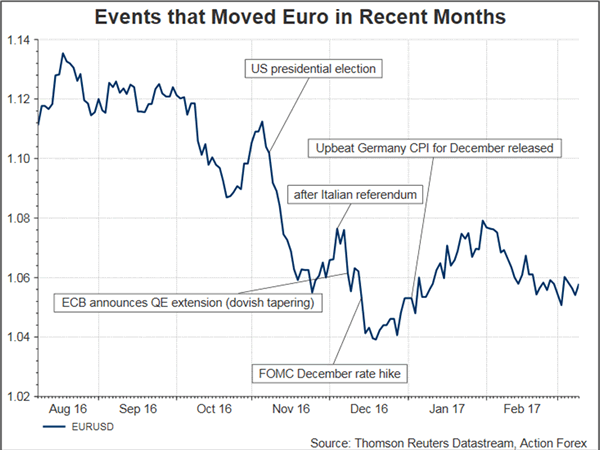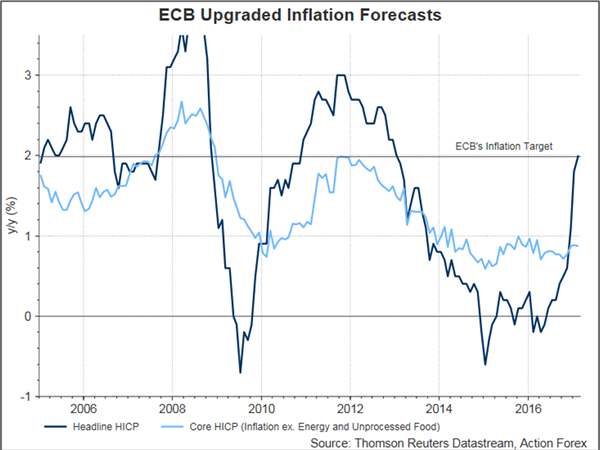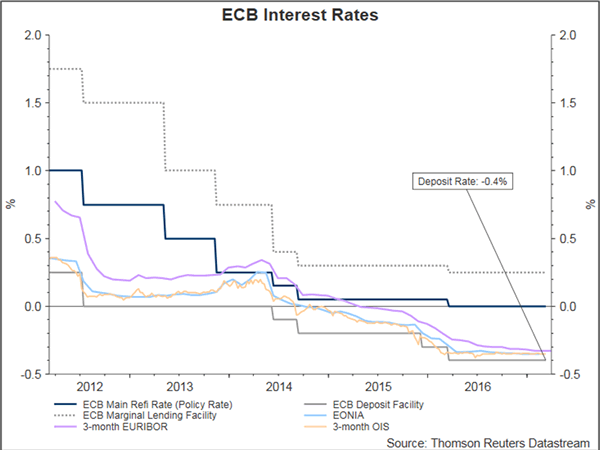Despite no change in the policy rate and the QE program, the euro gained after the ECB announcement, as President Mario Draghi added some upbeat flavors at the press conference and as the staff upgraded the inflation forecasts. The members continued to see risks to growth skewed to the downside, but agreed that they are "less pronounced" now. While the forward guidance in the statement maintained that "interest rates will stay low, or lower for an extended period of time", the members had discussions of its removal at the meeting. The single currency rose from a 3-day low of 1.0523 to as high as 1.0615 against US dollar. The pair gained +0.34% for the day. Global yields were also driven higher on possibility of a chance in ECB’s policy measures. The 10-year German bund yield added +5.6 bps to 0.421% at close, whilst the 10-year US Treasury yield climbed further higher to about 2.6%.

While affirming the pledge to maintain accommodative policies and noted there has not been "any significant development on the wages front", Draghi suggested that the members are "more optimistic about the growth forecast, we have to see how these improved prospects, as far as growth is concerned, translate into higher headline inflation". Draghi admitted that it is less likely for further measures to support the Eurozone economy as the threats to recovery have diminished. As he suggested, "there is no sign of a convincing upward trend in underlying inflation". Yet, he added that "there was a general recognition that the balance of risk has improved, certainly as far as growth is concerned" and "there is no longer that sense of urgency in taking further actions".
The economic projections were largely unchanged from previously, with the only tweak on inflation. The staff revised up their forecasts for headline HICP inflation by +0.4 percentage point to +1.7% y/y for this year, and by +0.1 percentage points +1.6% y/y for 2018. The reading for 2019 stayed unchanged at +1.7%. The forecasts for core inflation stayed unchanged at +1.1% this year but that for 2019 was revised +0.1 percentage point higher to +1.8% y/y. Meanwhile, the staff revised up their GDP growth forecasts to +1.8% for 2017 and +1.7% for 2018, both up +0.1 percentage point from the previous estimates, while the projection for 2019 stayed unchanged at +1.7%.
The accompanying statement contained little new information. The ECB reiterated the stance to keep interest rates "at present or lower levels for an extended period of time, and well past the horizon of our net asset purchases". It retained the reference that the central bank would "continue to make purchases under the asset purchase program (APP) at the current monthly pace of 80B euro until the end of this month and that, from April 2017, our net asset purchases are intended to continue at a monthly pace of 60B euro until the end of December 2017, or beyond, if necessary, and in any case until the Governing Council sees a sustained adjustment in the path of inflation consistent with its inflation aim". Draghi admitted at the Q&A session that there was "a cursory discussion about whether to remove the word ‘lower’ from the forward guidance". Note also that the reference that "If warranted, to achieve its objective the Governing Council will act by using all the instruments available within its mandate" if removed. Draghi explained that the removal signals the lack of "urgency in taking further actions while maintaining the accommodative monetary policy stance including the forward guidance".


